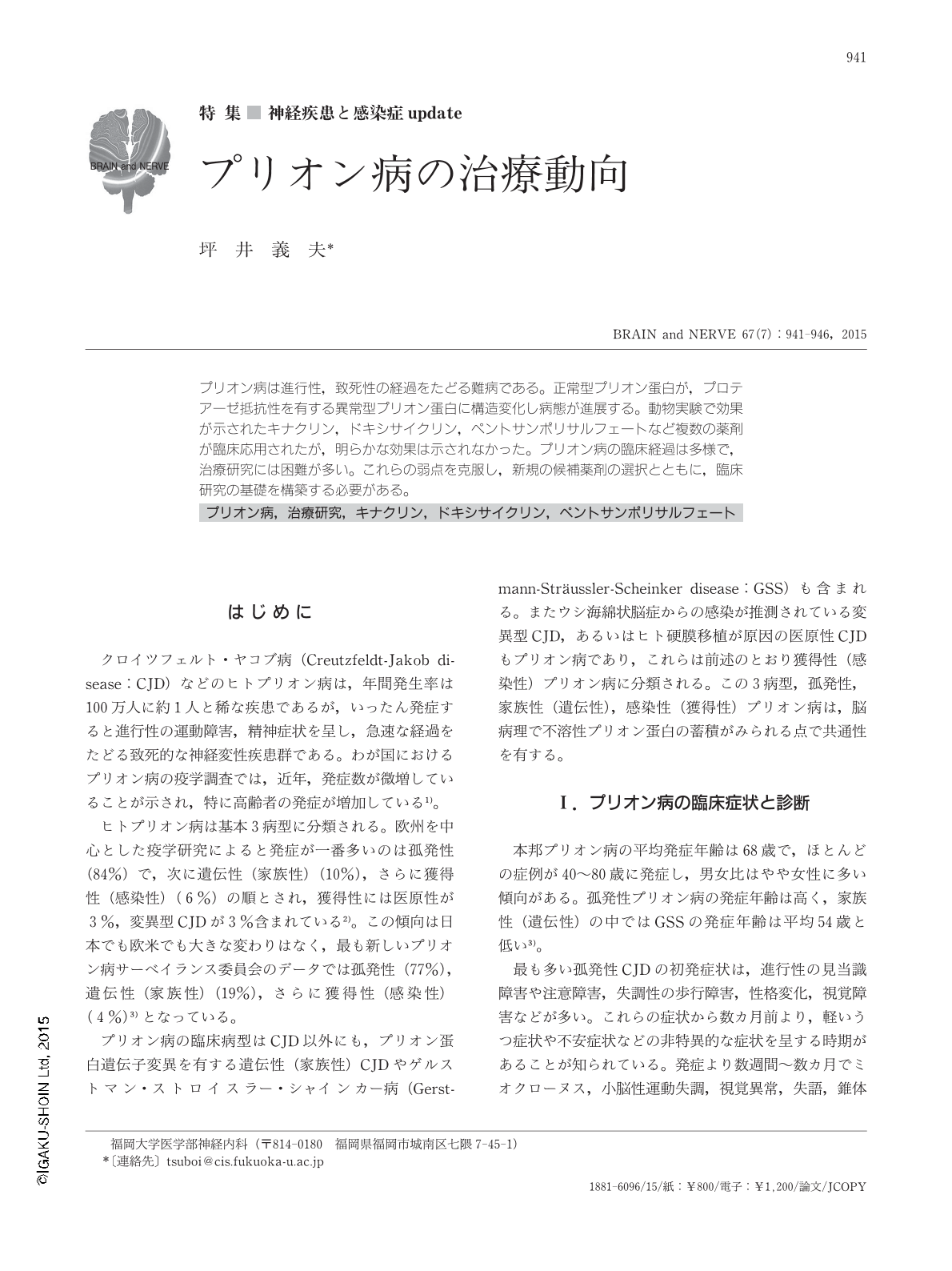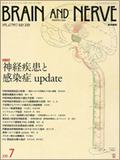Japanese
English
- 有料閲覧
- Abstract 文献概要
- 1ページ目 Look Inside
- 参考文献 Reference
プリオン病は進行性,致死性の経過をたどる難病である。正常型プリオン蛋白が,プロテアーゼ抵抗性を有する異常型プリオン蛋白に構造変化し病態が進展する。動物実験で効果が示されたキナクリン,ドキシサイクリン,ペントサンポリサルフェートなど複数の薬剤が臨床応用されたが,明らかな効果は示されなかった。プリオン病の臨床経過は多様で,治療研究には困難が多い。これらの弱点を克服し,新規の候補薬剤の選択とともに,臨床研究の基礎を構築する必要がある。
Abstract
Prion disease refers to a group of neurodegenerative disorders characterized by a relentlessly progressing clinical course leading to death. The pathogenesis of prion disease is the conversion of a normal type prion protein (PrPC) into a pathological isoform with protease resistance (PrPSc), which accumulates in the brain. A number of therapeutic agents, including quinacrine, doxycycline, and pentosan polysulphate have shown preventive effects against the conversion of PrPC into PrPSc in experimental studies; however, none of these agents have shown satisfactory efficacy in clinical trials. As the clinical course of prion disease varies, the design of clinical trials has been particularly difficult. These limitations must be overcome, and it is necessary to determine a basis for clinical trials with the new candidate agents.

Copyright © 2015, Igaku-Shoin Ltd. All rights reserved.


